The fact is that Schnauzer breeds are special in so many ways – they have friendly personalities, are amazing guard dogs; are wonderful with kids; easy to train…
There is one more thing that makes Miniature, Standard, and Giant Schnauzers special – All of the Schnauzer breeds are considered to be hypoallergenic.
But what does hypoallergenic mean?
In short, it means that there is less chance that you will have an allergic reaction to them.
Let’s be clear from the beginning – there isn’t such a thing as a “non-allergenic” dog breed. Some breeds are a better choice than others, though.
Schnauzers are some of them.
Everybody’s allergies are different, varying from mild to severe. And there are things you can do to minimize your reaction and exposure.
Depending on your situation, you might be destined to live doglessly.
Don’t despair!
If you take the time to do your research, get proper allergy testing, and work on keeping the allergens in check.
Having a Schnauzer could be a possibility!
Before you jump to conclusions, we need to get familiar with what causes allergies to dogs.
Science time!
What causes allergies to dogs?
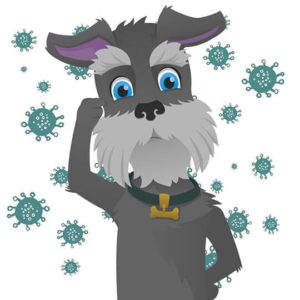
“Does a dog’s fur really determine the risk of an allergic reaction?”
To answer that question we need to know what the heck hypoallergenic dog breed means.
“Hypoallergenic” dog breeds are often defined as those that either don’t shed or are hairless.
So the answer is YES – to some extent.
What do you mean “to some extend”, you ask?
For most people who are allergic to dogs, their fur isn’t the issue.
You see, what causes an allergic reaction are dander, saliva, and urine.
Dander is the tiny bids of skin that are shed from the dog. (think of dander as dandruff in people) This dander is often combined with other allergens, like proteins found in dogs’ saliva, feces, and urine. Shed fur can carry proteins and dander all over your house.
But hypoallergenic Schnauzers don’t have that problem – they shed less than you.
Nevertheless, they can still cause an allergic reaction. Again, no breed is truly “allergy-safe”. In fact, hypoallergenic Schnauzers may produce just as many allergens as their shedding cousins.
Now imagine this – your dog licks himself when grooming; you pet your furry friend, or you let it lick you. With that, dander and protein are directly transferred to you.
Think about that next time you let your dog lick your face.
Allergies in kids

We’ve already stated the fact that Schnauzers are amazing with kids.
You’re maybe worried about how having a Schnauzer is going to affect your kid. This information should help set your mind at ease:
Recent research has shown that dog exposure before the age of one might protect the kid against future allergies.
Children exposed to dogs may have a lower risk of developing asthma, as well.
Allergy test

According to American Kennel Club, all Schnauzer breeds are recommended for allergy sufferers.
That’s good news! Still, you are going to be a responsible dog parent and get tested for allergens.
You don’t want to put yourself in a position where you might need to relinquish your pup because of ignorance, right?
Allergen component testing, using a standard blood draw, can get extremely specific. It can precisely pinpoint the exact proteins that may be causing your allergic reactions.
Whether you’ve done your tests or not, it’s still important to physically interact with a Schnauzer breed of choice before you get a puppy or an adult dog.
You can determine how much your body will react, if at all, only by being around and playing with this beautiful breed.
Don’t skip this step!
How can you reduce dog allergens?
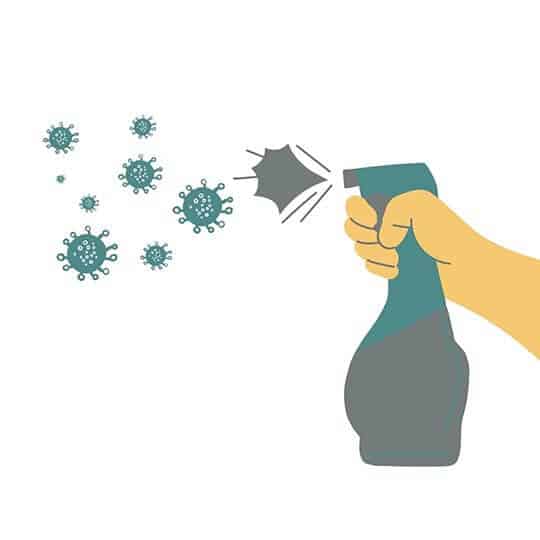
All right!
Someone in your family has an allergic reaction to Schnauzers.
Don’t worry! There are a few things you can do to lessen the severity of symptoms.
Allergy-proof your household
Those sneaky allergens are lightweight and tiny, so they easily stick to furniture, carpets, curtains, and bedding.
Minimize those kinds of surfaces in your home.
For example, use blinds rather than curtains and ditch the carpets
Keep surfaces clean
Experts suggest frequent vacuuming (don’t forget the furniture). You can also consider buying a machine with a high-efficiency particulate air (HEPA) filter.
Likewise, wash any fabrics your Schnauzer comes in contact with (his bedding, sofa blanket, dog clothes…) as often as you can.
Sleeping with your dog in the same bed, or even the same room is not recommended.
Consider hygiene
We shouldn’t be talking about this, but make sure to wash your hands after touching your dog. That will keep allergens off your skin.
It’s also important to keep your dog well-groomed. You don’t want those feces, urine, and saliva proteins all over your best friend. Frequent bathing and grooming can reduce the amount of dander that your Schnauzer accumulates.
If you’re too responsive to allergens, ask somebody else in the family to do the grooming.
A good tip is to have your dog brushed outside to minimize getting additional dander in your home.
You can always use the services of a professional groomer if you feel that way.
Allergen medications
There are plenty of allergen medications available to ease allergy symptoms. Always consult with your doctor about suitable treatments, though.
It may also be helpful to see an allergist for immunotherapy, which is the use of allergy shots to build a tolerance to dogs over time.
Let’s recap!
- While no dog is truly hypoallergenic, some breeds are better than others for allergy sufferers.
- By taking an allergy test, you can better prepare for the Schnauzer pup.
- There are many ways to reduce dog allergens, including grooming your Schnauzer and keeping a clean home.
In conclusion, life with a beautiful Schnauzer breed is still possible.
You just have to do a little bit of extra work.
Achoo!
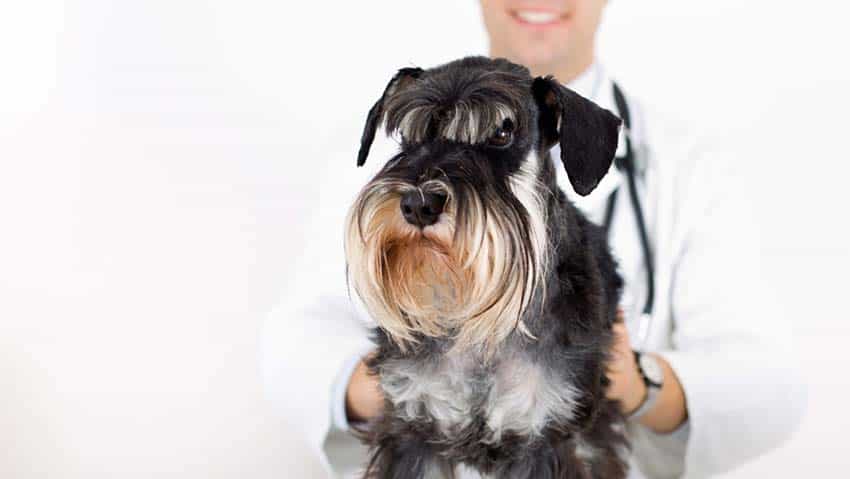
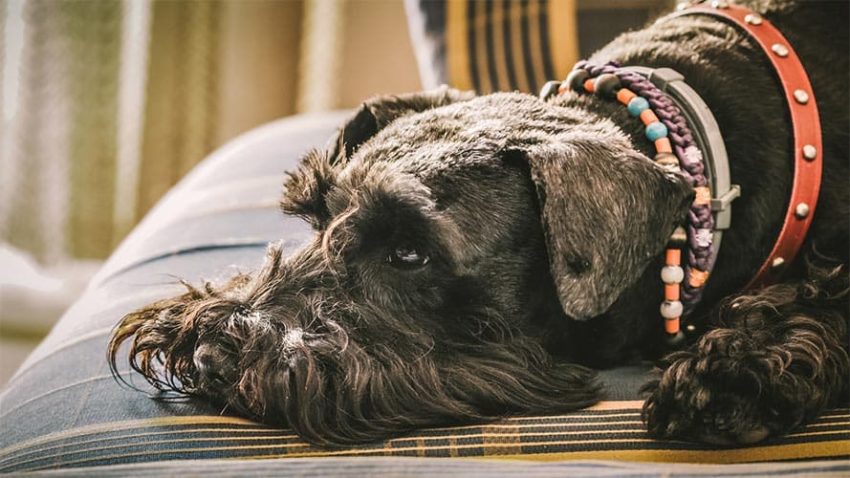
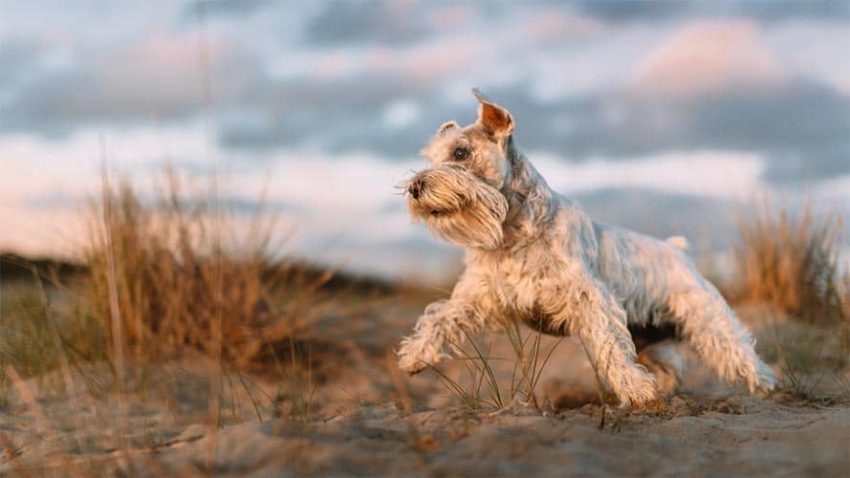
![5 Essential Schnauzer Training Commands [Extra Tips]](https://barbaschnauzers.com/wp-content/uploads/2022/02/Schnauzer-Training-e1646476714419.jpg)